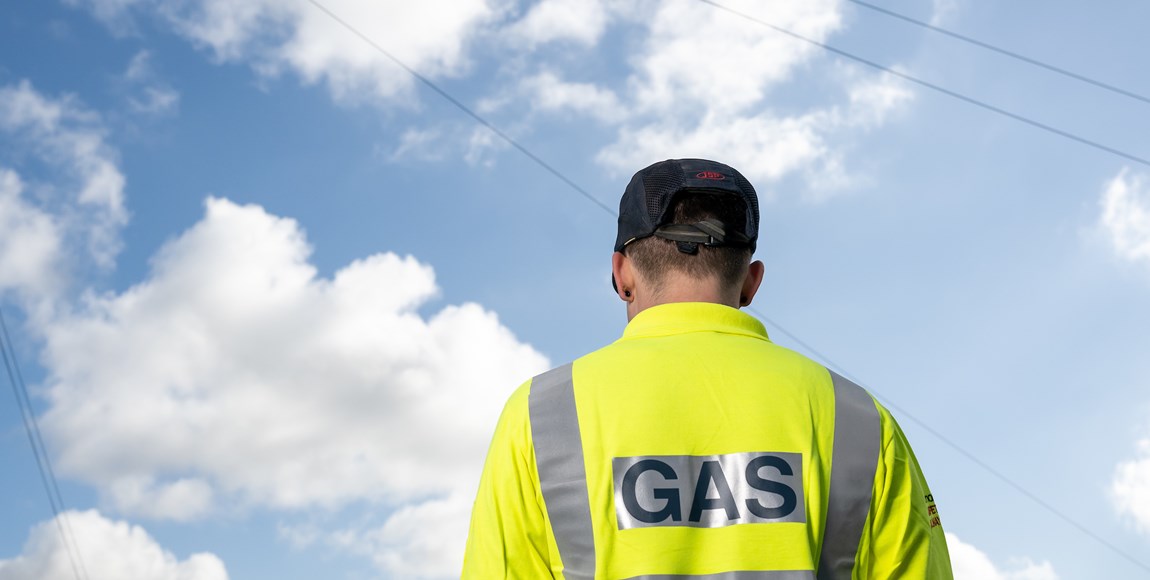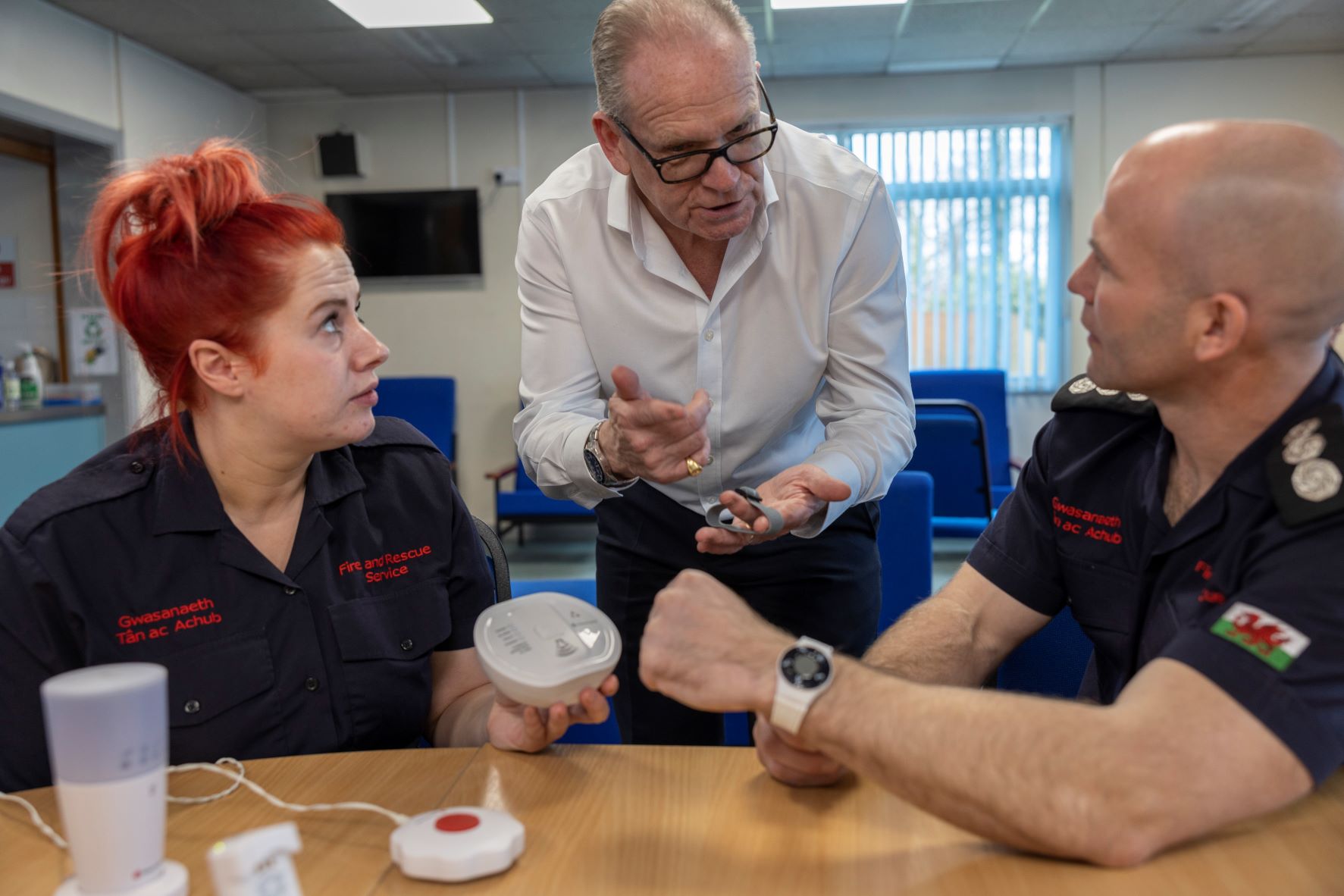Wales & West Utilities is piloting a project with South Wales Fire and Rescue Services (SWFRS) which will alert people who are profoundly deaf to the dangers of carbon monoxide (CO).
SWFRS currently fits Wi-Fi linked CO alarms, which also have vibrating pads and strobe lights, to alert occupants with hearing impairment to the dangers of CO. This pilot provides further assistance for people who are profoundly deaf by giving them a wearable device that will alert them to any dangers in their home.
Wales & West Utilities is funding the £5,000 project which will supply and install ten Wi-Fi integrated smoke/heat and CO alarm systems with wearable devices to households with profoundly deaf individuals / families.
The pilot project, which runs to 31 October 2022, will further SWFRS services for people with sensory impairments.
Ieuan Dobbs, Safe and Wellbeing Station Manager at South Wales Fire and Rescue Services, said:
We have been working for a number of years to supply systems to people with sensory challenges, so they are alerted to dangers around the house. This system links a number of safety alarms and the wearable device indicates to the wearer which alarm has activated.
We identified a gap in services for those who are profoundly deaf and this pilot with Wales & West Utilities will hopefully allow us to break down the barriers to support these customers.
Through the pilot SWFRS will supply ten individuals / families with a Bellman linked-wearable device which will alert them to potentially dangerous CO activities within the home – alongside heat and smoke alarm activations.
Ieuan continued:
If this pilot is successful, it will enable a system to which other safety alarms – like baby listening alarms and door-bell ringing alerts – can be linked, keeping families safe in their homes and improving their wellbeing.
Elizabeth Warwick, Stakeholder Engagement Manager at Wales & West Utilities, said:
We’re delighted to partner with South Wales Fire and Rescue Services to fund this innovative pilot project.
We are hopeful that the results of the pilot will demonstrate that this system, which offers a CO alarm, smoke alarm and a heat alarm, is beneficial and will alert deaf people to any danger in their home through a wearable watch or pager device.
We are committed to doing everything we can to support those most in need in our communities. Working with a trusted partner like SWFRS means we are able to help more people stay safe in their own homes.
Carbon monoxide (CO), known as the ‘silent killer’ because you can’t see it, smell it or taste it, kills 50 people a year in England and Wales and hospitalises many more. In the UK, there are more than 4,000 visits to Accident and & Emergency for treatment of carbon monoxide poisoning – which can often lead to lasting neurological damage. Even low levels of exposure over an extended period can cause serious health issues, including brain injuries.
Between April 2021 to March 2026, Wales & West Utilities have £7m to spend on projects which can support consumers in vulnerable situations or raise the awareness of the dangers of carbon monoxide and keep people safe from the ‘silent killer’.
It’s called the Vulnerability and Carbon Monoxide Allowance (VCMA), and 75% of the money will be spent in Wales and south west England, while 25% will be spent on collaborative projects with the other gas networks in England and Scotland.
If you have a project that you think Wales & West Utilities could support, either individually or collaboratively with other gas networks, then contact Wales & West Utilities at VCMA@wwutilities.co.uk
Wales & West Utilities, the gas emergency and pipeline service, brings energy to 7.5m people across the south west of England and Wales. If you smell gas, or suspect the presence of carbon monoxide, call us on 0800 111 999 straight away, and our engineers will be there to help any time of day or night. Before visiting, we'll ask you to let us know if you or anyone in your household, is experiencing Coronavirus symptoms or self-isolating. We'll still come and help you: but our teams will take some additional precautions to keep us all safe.




